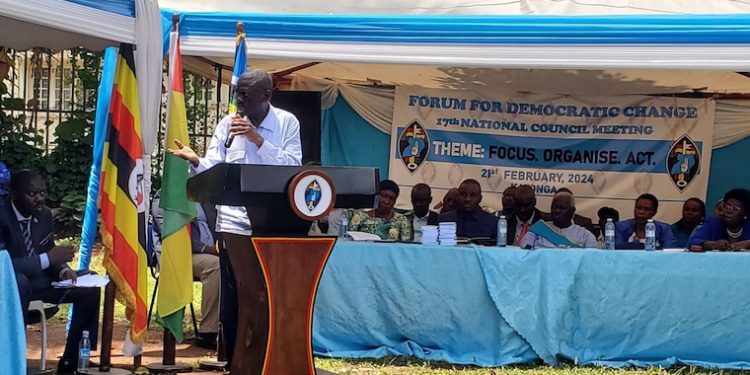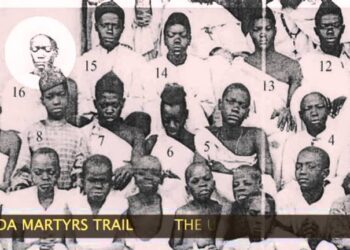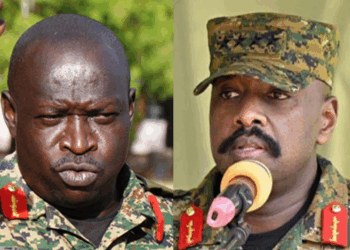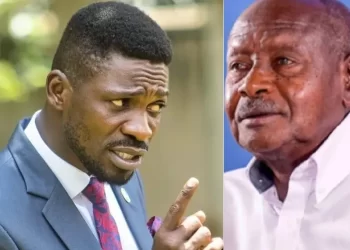By THE OBSERVER UG
The Forum for Democratic Change (FDC) Katonga faction is contemplating the establishment of a new political party, marking a significant split from its parent organization, the FDC.
If accepted, this faction will formally disassociate itself from the group led by Patrick Amuriat, commonly referred to as the Najanankumbi faction. This potential development would be the second breakaway from the primary opposition party, following the formation of the Alliance for National Transformation (ANT) party in 2019 by former FDC president Rtd Gen, Gregory Mugisha Muntu.
This proposal is outlined in a report by Kampala Lord Mayor, Erias Lukwago, summarizing internal developments within the party. Lukwago, appointed as the interim party president last year, presented the report during a national council meeting held at Col Kizza Besigye’s office on Katonga Road.
Lukwago informed the gathering that during their regular National Executive Committee (NEC) meetings, some members suggested considering a rebranding initiative to align with their vision of constructing a new Uganda with fresh institutions. He stated, “A section of members has mooted a rather novel proposal that since the vision, heart, and soul of members of the party resides here at Katonga, the bona fide members who are still committed to the struggle to push back against the junta should consider getting a new brand and move on with the vision of building a new Uganda with new institutions. This would essentially entail having a new political formation.”
Furthermore, Lukwago highlighted calls for reconciliation from the Najanankumbi-based faction. In response, he asserted that for such a proposal to be entertained, the individuals in question must renounce their disruptive actions and apologize for the chaos at Najanankumbi, in addition to undergoing a cleansing and exorcising process.
In September of the preceding year, the Katonga faction suspended the party president, Patrick Amuriat, during an extraordinary delegates meeting. Lukwago, previously serving as FDC deputy president for the Buganda region, was tasked with presenting suggestions for strengthening the party in his report.
Apart from the idea of forming a breakaway party, the Lukwago report emphasizes the importance of continuing the fight for FDC and rescuing it from perceived capture. It also suggests denouncing FDC party-related activities and establishing a pressure group akin to the Reform Agenda, which played a role in the formation of FDC in the past.
Ibrahim Semujju, Kira Municipality MP and council member, firmly rejected the reconciliation call, emphasizing that their objective is to rescue Uganda, regardless of the platform’s name. Besigye echoed this sentiment, urging council members to focus on explaining events at the grassroots level and combatting emerging propaganda.
Besigye acknowledged that all options presented in the Lukwago report are applicable, including the possibility of forming a social movement. However, he cautioned that this would involve abstaining from elections, a decision he does not object to but stressed the importance of gathering public input before making a final decision.
The council collectively agreed to postpone the initial March 19 delegates’ conference, allowing delegates a two-month period to collect feedback and ideas from FDC members across the country to inform their choice of the next course of action.







Discussion about this post